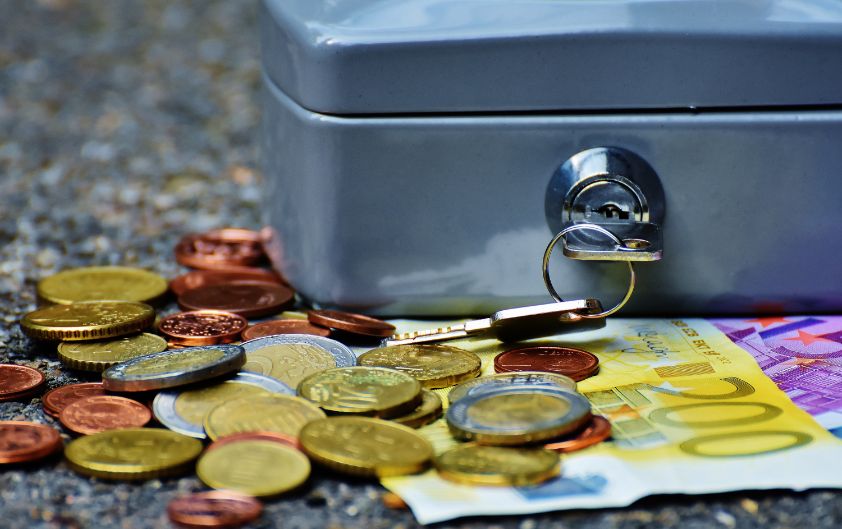
How Much Money Should I Have Saved by 21?
Not sure if you will have enough money saved by the age of 21? Continue reading to learn a practical estimate of how much you ought to have. But keep in mind that since everyone has different financial obligations and lifestyles, these figures should only be used as a guide.
Most 21-year-olds find it challenging to save money. Even if you are a careful consumer, you are probably still well below your earning potential. As a general rule of thumb, you should set aside 20% of your income for retirement, unanticipated expenses, and long-term objectives. If you worked full-time and earned the median salary for the equivalent of a year by the time you were 21, you ought to have more than $6,000 saved by then.
How Much Money Should a 21-Year-Old Have Saved?
Let’s say your annual salary is $22,620, which is the standard wage for workers between the ages of 16 and 19. Let’s also assume that by the time you are 20 your income has increased to $29,962. How much money should you have in your savings account once you turn 21 if you’re following the 50-30-20 rule?
Savings for a 21-year-old should be $24,088.40. That is presuming the individual has been employed since they were 16 years old, earned $22,620 annually until they turned 19, increased their pay to $29,962 by the time they turned 20, and adhered to the 50-30-20 rule.
But if you feel 20 grand is an unrealistic savings goal, you’re not alone. How are many young adults expected to have this much when they have nowhere close to it? Find out Which Savings Account Will Earn You The Most Money?
How to Save Money When You’re 21?
At age 21, your habits are much more important than your actual savings balance. Even if you can only start saving a small amount now, over time you’ll be in excellent shape. Here are some habits to start forming right away to help you reach your financial objectives, no matter how lofty they may be.
You may be interested in The Importance Of Saving Money.
Build Your Emergency Fund

It’s critical to begin accumulating an emergency fund with three to six months’ worth of living expenses, regardless of your age. The good news is that your living expenses are usually quite low when you’re 21. You can probably get away with the three-month minimum if you have health insurance, are childless, and do not own a home.
Even if you can only set aside $10 or $20 per week, try to budget a small portion of your income for a designated savings account. You can gradually increase your savings until you have enough money set aside to cover expenses for six months once you have a reliable source of income.
Instead of investing in stocks, keep your three-month emergency fund in cash. It’s important to always have cash on hand for unexpected expenses.
Avoid Credit Card Debt
While credit card debt is typically a much more dangerous form of debt, student loans are a significant source of anxiety for many young people. In comparison to student loan interest rates, carrying a credit card balance carries an average interest rate of over 16%, which is much higher.
You haven’t had much time, at the age of 21, to rack up a sizable credit card balance. Once you’ve saved the cash for your three-month emergency fund, pay off any balance you may already have.
Since using a credit card is typically the best way to establish a credit history, you don’t need to completely avoid them. On the contrary, do not charge anything that you cannot afford to pay off at the end of the month.

Invest to Take Advantage of Compounding
Compound interest and earnings are particularly effective when you’re in your early 20s. If you can afford to put money into the stock market now, the rewards in retirement will probably be enormous. If you invest $5,000 when you are 21 and receive 9% annual returns, you will have more than $220,000 at age 65, even if you never make another contribution.
Early in your 20s is a great time to start saving for retirement by opening a Roth individual retirement account (IRA). Once you reach the age of 59 1/2, you can receive the money tax-free but are not allowed to deduct your contributions from your taxable income. Taxes on that money now, when you’re probably in a low tax bracket, are a small price to pay for all that tax-free growth.
If you have access to a company-sponsored retirement plan, whether it be now or in the future, try to make enough contributions to receive the full company 401(k) match. Your money has already been doubled if your employer matches 50% of your contribution.
Tackle Student Loans Selectively
You might feel inferior if you have student loans. 1 financial goal is to pay them off as fast as possible. However, not all student loans are created equal; private loans typically have higher interest rates and should be paid off first.
After that, as you work toward other financial objectives like saving, you might think about repaying any federal student loans with low-interest rates more gradually.
Don’t Succumb to Lifestyle Inflation
The most crucial thing you can do right away to achieve your savings goals is to stop lifestyle inflation, which is the propensity we have to raise our standard of living whenever we start earning more money.

You’re probably not living the high life yet at age 21. The better off you will be, the longer you can keep up any frugal habits you’ve developed.
That doesn’t mean you have to eat only rice and beans all the time or share a room with someone. On the other hand, as the size of your paycheck grows, your expenses should grow less, and you can save the difference.
Where Should a 21-Year-Old Save Their Money?
Saving doesn’t just entail raising your income and cutting back on your expenses. In fact, there are ways to make money work for you rather than the other way around.
If you’ve read my blog before, you know how I feel about investing and compound interest. It seems like the most effective way for someone in the middle class to become a millionaire.
However, a great deal of time is required.
In other words, as a 21-year-old, if you invest 10% of your income over the course of your working years, let’s say from 21 to 65, and you earn an average return of 7% to 10% over that 45-year period, you will be able to retire very, very comfortably.
Therefore, even though I generally avoid giving out specific investment advice on where to invest money, I would strongly encourage any 21-year-old to learn more about how they can effectively invest and grow their money for retirement.
Conclusion
If your savings account only has 20% of your annual income saved up, don’t give up. Despite this, you should continue saving as much as you can to make sure that you won’t have too many financial concerns when you retire.
Don’t panic over how much you have right now and whether that’s “right” for your age. Concentrate on your needs and the means of obtaining them. Don’t be under the impression that it’s “too late” now or that you missed the boat on being financially responsible.


